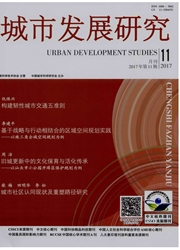

 中文摘要:
中文摘要:
城市贫困给我国城市化带来了新的挑战,已经成为和谐社会建设中必须正视和亟待解决的重大问题。本文通过在成都的实证调查,探索我国快速城市化过程中导致城市贫困的贫困者个人、政府和社会三方面责任缺位的现状,并结合相关理论分析,提出二元经济制度、人力资源投入、政治参与缺乏和政府行为缺失与越位是城市贫困存在的深层次原因;提出既要有“还权”的输血式扶贫,也要有“赋能”的造血式扶贫措施;建议充分借鉴国际经验,实现社会初始公平、提高社会流动性。
 英文摘要:
英文摘要:
Bringing about new challenge to China's urbanization, urban poverty has been being a severe issue need to be solved during the building of the harmonious society. This paper, through case study in Chengdu, by exploring the urban poverty issue during the process of rapid urbanization in China, puts forward the problem of the lack of responsibility of impoverished individuals, government and society, finds out the dual economic institution, lack of human resources investment, lack of political paaicipation, and the absence and offside of governmental function are deep seated reason causing urban poverty. This paper also points out both the power return and empowerment are needed for poverty alleviation.
 同期刊论文项目
同期刊论文项目
 同项目期刊论文
同项目期刊论文
 期刊信息
期刊信息
